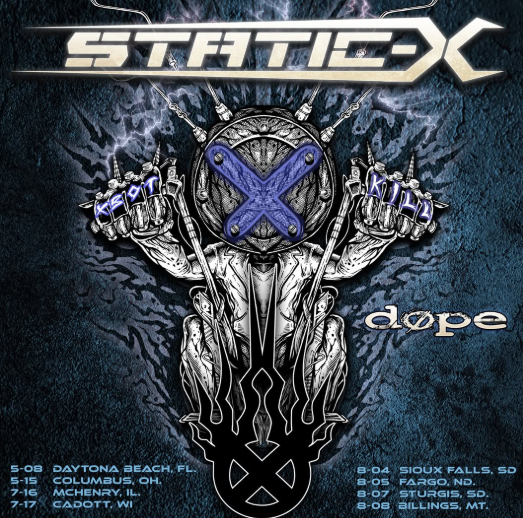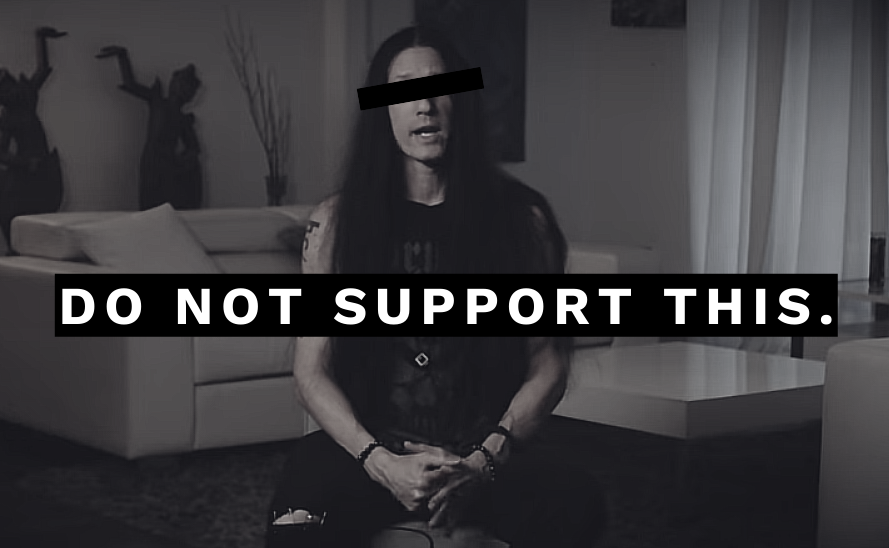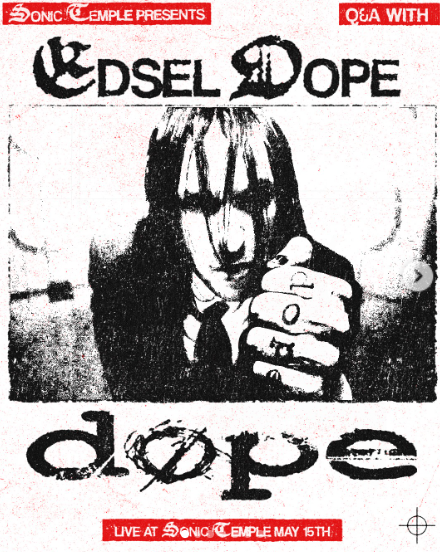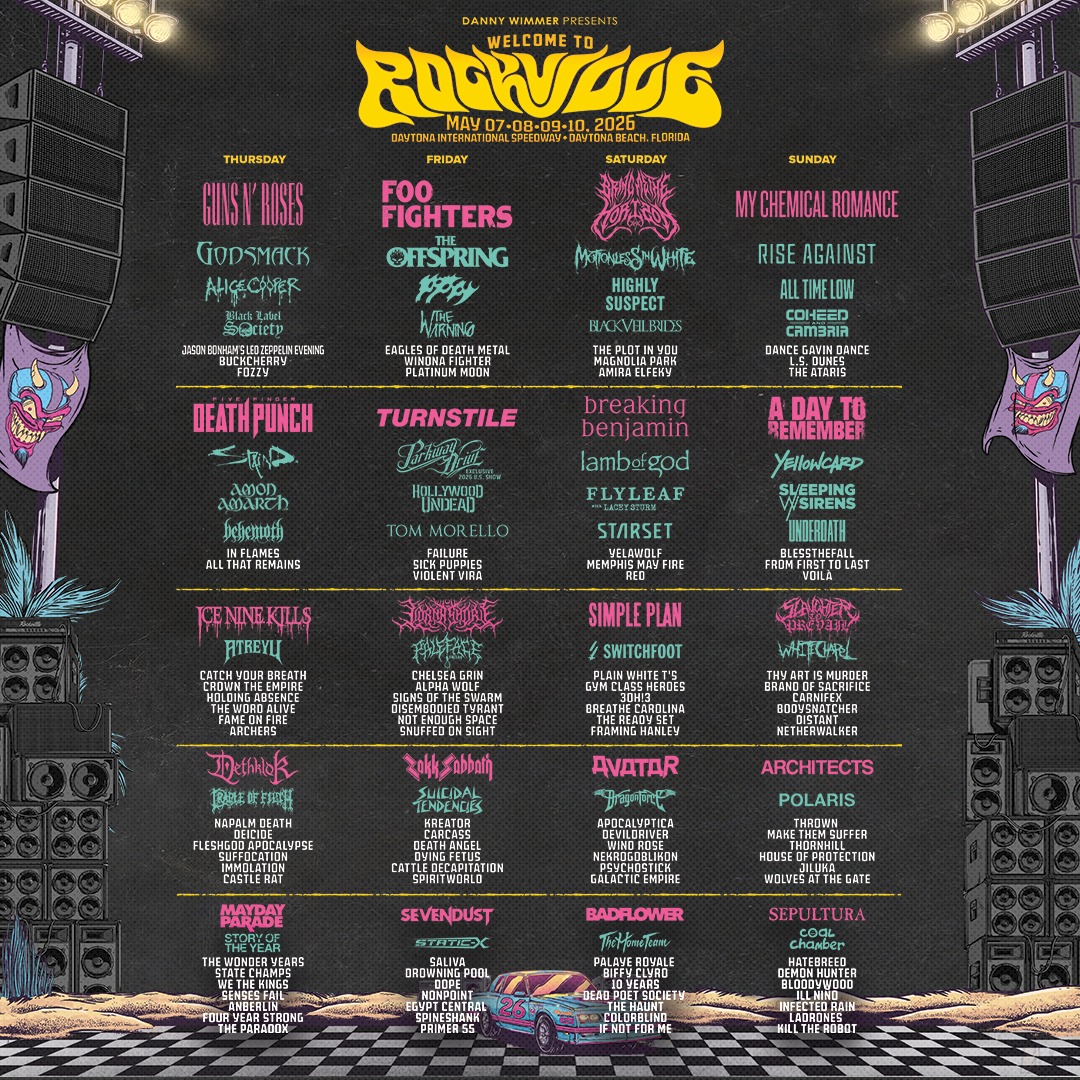A new pic of Edsel just dropped! I won’t get into the whys and what for concerning the topic of the post, but I’ve linked Dope’s Instagram if you’d like to check it out. Great to see him, as always!

Credit: @dopetheband
A new pic of Edsel just dropped! I won’t get into the whys and what for concerning the topic of the post, but I’ve linked Dope’s Instagram if you’d like to check it out. Great to see him, as always!

Credit: @dopetheband
After careful consideration, I’ve decided to withdraw edseldopefan.org’s presence from TikTok.
I understand that some may see this as hypocritical since we remain active on Instagram. While no social media platform is perfect, TikTok’s new ownership and updated terms of service cross a line for me. My growing disinterest in the platform also factored into this decision.
Going forward, we will maintain a presence on Instagram and mirror our content on Facebook, which will be our only social media channels. We will continue to operate without monetization of any kind, as we always have.
Thank you in advance for your understanding.
Just checking in: sorry that updates have been a bit sparse! I was sick over the New Year, but things are much better now!
And seems like I’m just in time for some tour news: Dope will be joining Static-X for select dates over the summer. Tickets are on presale tomorrow and to the general public on Friday. For more info and how to purchase, visit dopetheband.com.


I went back and forth on whether I wanted to say anything about the upcoming Matt Zane “documentary” on Wayne Static and Tera Wray Static. But ultimately, staying silent doesn’t sit right with me. I care about Wayne, and pretending this is harmless would feel wrong. Please note that I am not speaking for or on behalf of Edsel Dope, Static-X, or Wayne and Tera’s families. All opinions are my own.
Matt Zane is producing an unauthorized documentary based on his time as a friend and collaborator to Wayne and Tera. Both families have publicly opposed this project – which, frankly, should have been the end of it. Instead, the project continues, complete with a crowdfunding campaign inviting fans to contribute.
I’ve watched the campaign video. “Disturbing” barely covers it. What I saw wasn’t remembrance. It wasn’t respect.
It was exploitation.
If you want to hear Wayne’s voice, honour his art, or experience his final recordings, you already can. Static-X released them. There is also an officially authorized Static-X documentary on the way – created with the blessing of the people who knew and loved Wayne best.
So if Matt Zane truly cared, why didn’t he go through the proper channels? Why avoid the people who could give permission? The answer feels obvious: he knew they would say no. And with Static-X’s revival thriving and an authorized documentary in progress, Zane’s crowdfunded project reads far more like a predatory cash-grab than any kind of tribute.
edseldopefan.org stands with the families and the surviving members of Static-X. We urge fans not to support unauthorized, exploitative media.
Edsel did a small Q&A with Sonic Temple ahead of Dope’s appearance at the festival next year. Interestingly, he answers “I’d like to think so” when asked if there’s new music on the horizon, so that’s exciting! Check out the entire Q&A below.

I’ve gotten a bit more confident in my writing lately… so I’m giving something another shot: reviewing every Dope studio album all over again.
But this time there’s a twist.
Instead of going in release order, I’ll be dropping the reviews based on edseldopefan.org’s ranked list of their albums. Each review will also include:
– the best track off the record
– the best music video from that era
And hey – just because something lands lower on the ranking doesn’t mean it’s bad. Dope doesn’t do bad albums. It just means some hit harder or are more sentimental to me. I’m open to hearing your own rankings!
First review coming soon.
Stay tuned, stay loud.
Dope’s been added to Welcome to Rockville’s lineup May 7-10 2026. Looks like they’re on with Sevendust and Static-X again on that Friday. I’ve never heard of this festival, but there’s a lot of solid bands booked for it! And if Dope’s with Sevendust and Static-X, that’s gonna be killer for sure.
Tickets: Here

 Today, edseldopefan.org remembers the incomparable Wayne Static. When Wayne broke onto the global stage with Static-X, he helped change music history forever. When we lost him far too soon aged just 48, the music world lost a legend.
Today, edseldopefan.org remembers the incomparable Wayne Static. When Wayne broke onto the global stage with Static-X, he helped change music history forever. When we lost him far too soon aged just 48, the music world lost a legend.
Wayne’s incredible music and influence lives on. And with the with the posthumous release of Project Regeneration Vol 1 and 2, Wayne’s final recordings have reached a new generation of fans eager for the energy and excitement of Static-X.
Wayne, we’ll never forget you. You gave us everything you had.
Thank you.
More of what’s happening with Dope in 2026: they’ll be at the Sonic Temple Festival in Ohio. The festival’s from May 14th-17th, and Dope will be playing that Friday with Sevendust and Static-X (among others). Looks like a pretty solid lineup!
Tickets: Here
Here’s what’s coming up on edseldopefan.org:
As always, if you have any questions, comments, or suggestions, please let me know!